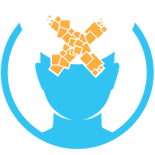Degrees of freedom: Difference between revisions
Appearance
Xinreality (talk | contribs) m Text replacement - "Oculus Rift" to "Oculus Rift (Platform)" |
Clarify |
||
| Line 1: | Line 1: | ||
'''Degrees of freedom''' or '''DOF''' is the ways an object can move within a space. There are a total of 6 degrees of freedom in a 3 dimensional space. The 6 DOF can be divided into 2 categories, rotational movements and translational movements. Each category has 3 DOF. [[Oculus Rift | '''Degrees of freedom''' or '''DOF''' is the ways an object can move within a space. There are a total of 6 degrees of freedom in a 3 dimensional space. The 6 DOF can be divided into 2 categories, rotational movements and translational movements. Each category has 3 DOF. The original [[Oculus Rift DK1]] only had 3DOF. Oculus Rift headsets DK2 and later, and [[SteamVR]] [[HMD]]s all have 6 DOF. Both [[rotational tracking|orientation tracking]] (rotation) and [[positional tracking]] (translation) are required to have a truly [[immersion|immersive]] [[VR]] experience. | ||
==Rotational Movements== | ==Rotational Movements== | ||
| Line 10: | Line 10: | ||
The ability to tracking translational movements are required for [[positional tracking]], the ability to determine the absolute position of an object in a 3D environment. | The ability to tracking translational movements are required for [[positional tracking]], the ability to determine the absolute position of an object in a 3D environment. | ||
[[Category:Terms]] | [[Category:Terms]] | ||

